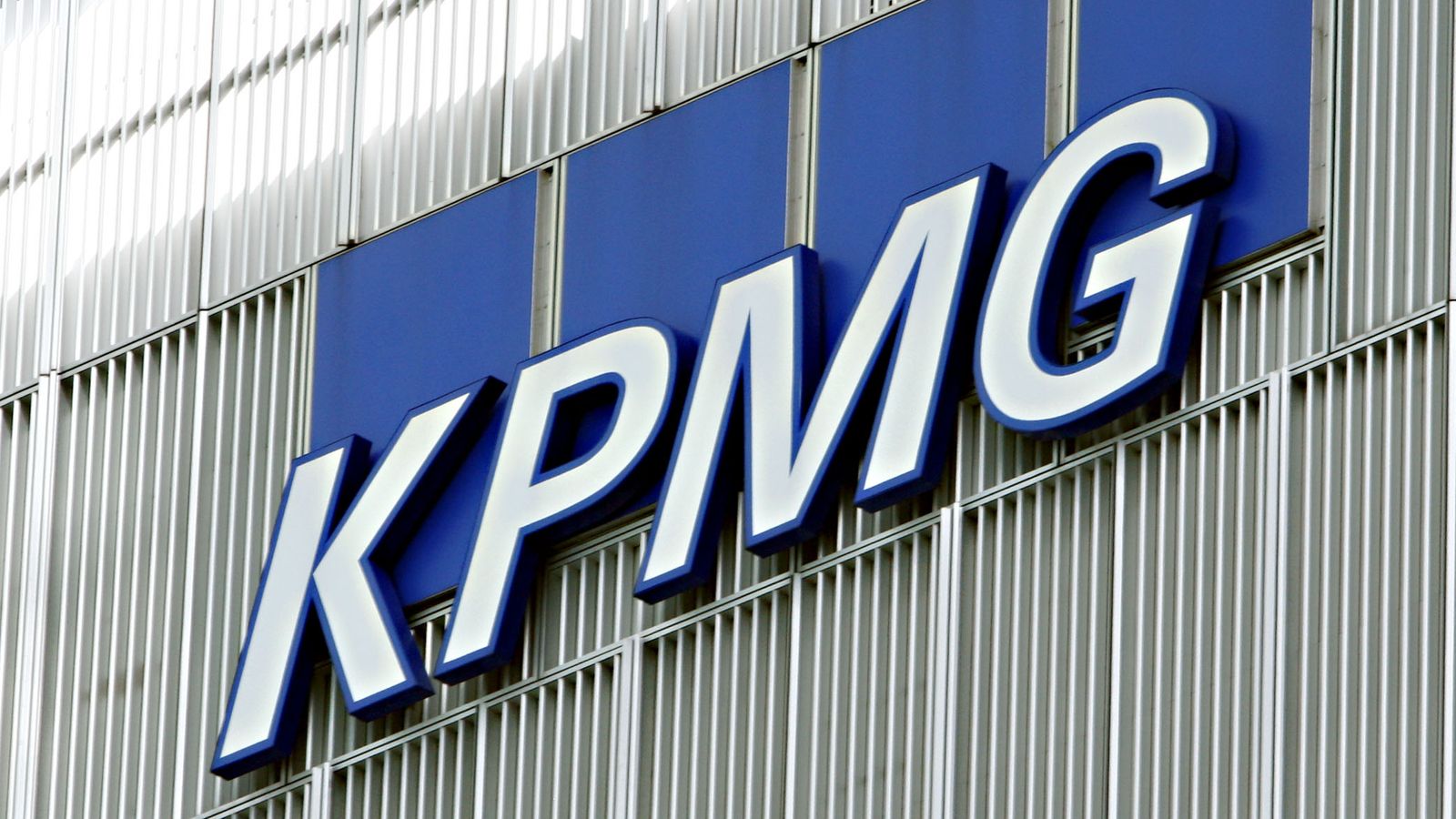KPMG is facing a potential damages bill of well over £1bn for its role as the auditor to Carillion, it will emerge on Thursday when the accountancy firm acknowledges receipt of a formal legal claim from the Official Receiver (OR).
Sky News has learnt that the sum being sought by the construction giant’s liquidator is well above the highest previous estimates of £1bn.
City sources said on Wednesday that the actual figure being sought by the OR was in the range of £1bn-£1.5bn, with one indicating that it was likely to be around £1.2bn.
If confirmed, that would underline the mammoth scale of the legal claim against KPMG, whose UK boss, Jon Holt, told staff this week that they would learn of further developments in relation to legacy issues in the coming days.
One insider said KPMG had until Thursday to acknowledge the receipt of the particulars of claim.
The document is expected to be placed in the public domain soon afterwards.
The legal battle over KPMG’s supervision of Carillion’s books threatens to be one of the most costly in British corporate history, and comes as a separate tribunal brought by the audit regulator has heard allegations of bullying and document-forging from former employees.
Energy price cap: Households may get £200 support as announcement brought forward
Inflation crisis: ‘Impossible’ to shield shoppers from rising costs, retail body warns
Santander flags increased competition for mortgage lending as it reports profit surge
Mr Holt flagged the “difficult start to the year for the firm reputationally” even as he trumpeted a rebound in KPMG UK’s profitability.
Confirming a report by Sky News, the firm said it had notched up average partner profit of £688,000 last year amid a booming environment for its deal advisory services.
The OR’s claim against KPMG in relation to Carillion is understood to include £230m of losses in the form of dividends it argues should never have been paid out by the listed construction group as it hurtled towards disaster.
It also wants to recoup £20m of advisory fees that it is understood to allege were avoidable.
The OR’s main argument is understood to be based on the potential for far more substantial damages based on compensation for trading losses in the run-up to Carillion’s demise.
Last year, the OR struck a deal with Litigation Capital Management, a stock market-listed company, to fund the claim.
KPMG is preparing to defend itself “vigorously” against the action, according to one source.
In its results this week, it increased provisions in relation to Carillion from £95m to £144m – including possible regulatory fines – suggesting that KPMG does not believe the OR’s much larger claim has merit.
Insiders have said that the action against KPMG is being driven by the liquidators’ statutory duty to maximise recoveries for Carillion’s creditors.
The construction group, which was involved in building and maintaining hospitals and roads, and delivering millions of school meals, went bust in January 2018 owing close to £7bn.
Thousands of jobs were lost as a result.
Kwasi Kwarteng, the business secretary, has authorised the Insolvency Service to pursue former Carillion board members including Philip Green, its chairman, with a view to having them disqualified from acting as company directors.
The legal action is expected to allege that KPMG failed in its duties as auditor to spot misstatements in the outsourcing group’s accounts.
Carillion’s demise became one of the principal catalysts for reform of the audit sector in Britain, with far-reaching consequences including the creation of a new watchdog, and a requirement for the big four firms – Deloitte and EY being the others – to ‘operationally separate’ their audit and consulting arms.
At the time of its collapse, Carillion held approximately 450 construction and service contracts across government.
It employed more than 43,000 people, including 18,000 in the UK.
In a scathing report on the company’s corporate governance, the Commons business, energy and industrial strategy select committee said: “As a large company and competitive bidder, Carillion was well-placed to win contracts.
“Its failings in subsequently managing them to generate profit was masked for a long time by a continuing stream of new work and… accounting practices that precluded an accurate assessment of the state of contracts.”
KPMG served as Carillion’s auditor for almost two decades, earning a total of £29m for its audit work.
The OR and KPMG declined to comment.






















